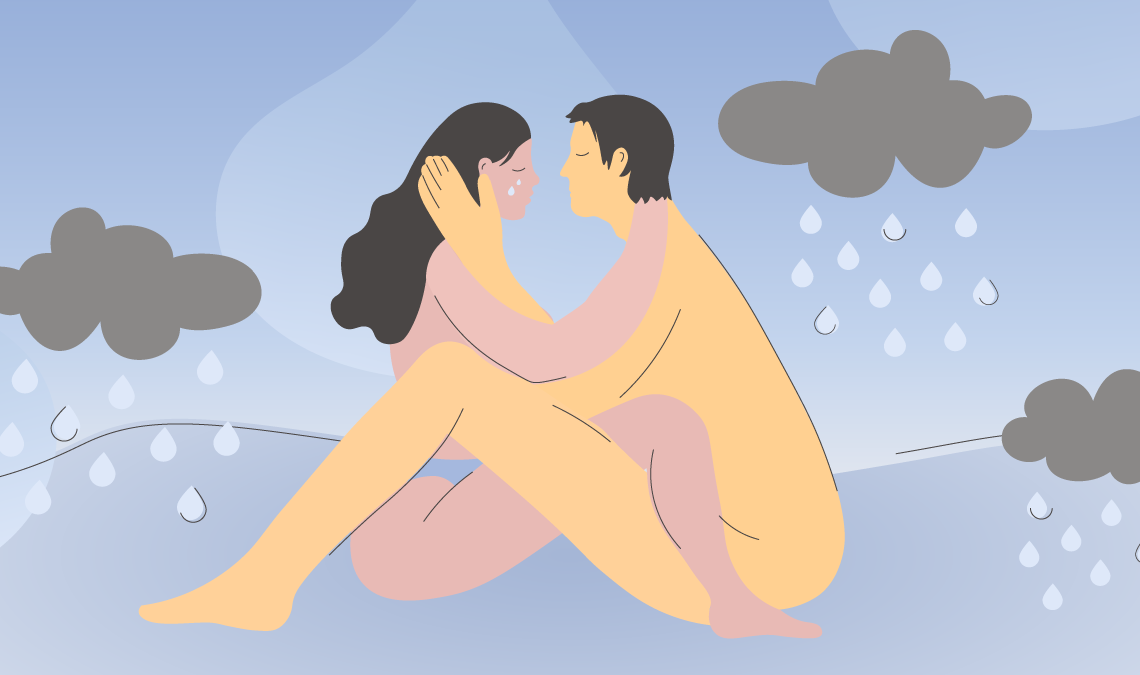We often portray sex as a purely physical act, but it encompasses complex and varied emotional dimensions. One such phenomenon that some individuals experience is crying after sex. While this reaction may seem perplexing or even alarming to some, it’s essential to recognize that it’s a natural and relatively common response for many people. In this article, we’ll delve into the reasons behind post-sex tears, exploring the emotional, psychological, and physiological factors that may contribute to this phenomenon.
Why do we cry after sex?
Crying after sex often involves a release of emotions. Sex can create intense intimacy and vulnerability, evoking a range of feelings from love and connection to insecurity and past traumas. For some individuals, physical intimacy can catalyze the release of suppressed or overlooked emotions.
Exploring Vulnerability and Intimacy:
Intimacy involves not only physical closeness but also emotional openness and vulnerability. Engaging in sexual activity can amplify feelings of vulnerability, especially when there is a deep emotional connection with a partner. For some people, the intensity of this vulnerability can trigger tears as a way of expressing and processing these emotions. Crying after sex can be a sign of trust and comfort with a partner, indicating a willingness to be emotionally exposed and authentic in their presence.
Addressing Past Traumas and Emotional Baggage:
For others, crying after sex may stem from past traumas or emotional baggage. Our personal histories and experiences deeply intertwine with sexuality and intimacy. Individuals who have experienced past sexual abuse, relationship difficulties, or other forms of emotional trauma may find that sex triggers unresolved emotions and memories. Crying can be a response to these triggers, signaling a need for healing and closure.
Hormonal and Physiological Factors:
The act of sex itself can trigger physiological responses in the body, including the release of hormones such as oxytocin and endorphins. These hormones are associated with feelings of bonding, pleasure, and emotional connection. However, the hormonal fluctuations that occur during and after sex can also influence mood and emotions. For some individuals, these hormonal changes may contribute to feelings of emotional sensitivity and vulnerability, increasing the likelihood of tears.
Communication and Support:
If you or your partner experience crying after sex, it’s essential to approach the situation with empathy, understanding, and open communication. Recognize that crying is a natural and valid emotional response and may not necessarily indicate distress or dissatisfaction. Encourage open dialogue about feelings and emotions, and be willing to offer support and reassurance to each other. Seeking guidance from a therapist or counselor proves beneficial, especially you have experienced past traumas or unresolved emotional issues.
Crying after sex is a multifaceted phenomenon that can stem from a variety of emotional, psychological, and physiological factors. It’s a response that many individuals naturally experience, emphasizing the need for empathy and kindness in understanding. By recognizing and exploring sex’s emotional dimensions, we can deepen our understanding of ourselves and our partners, nurturing greater intimacy, connection, and emotional well-being.
Want to know what the Nua community thinks about post-sex tears? Join the conversation now.



